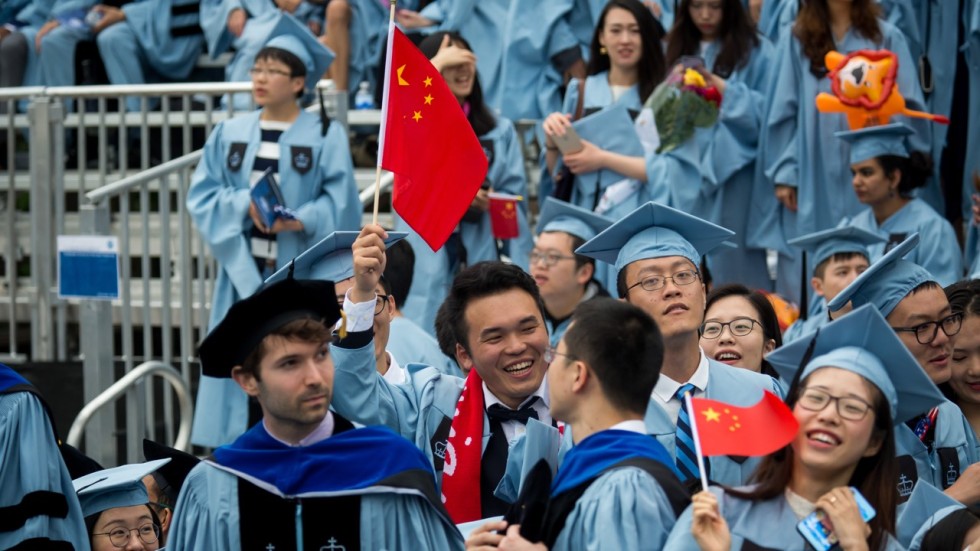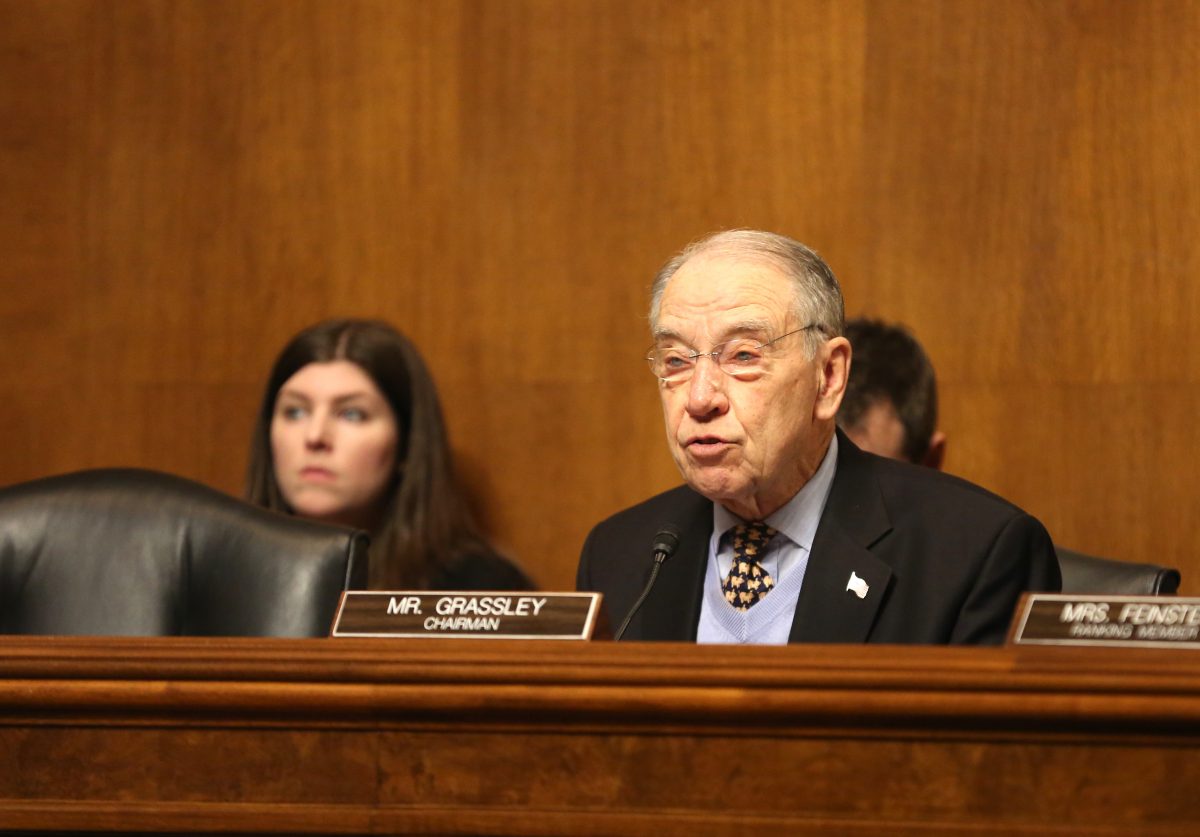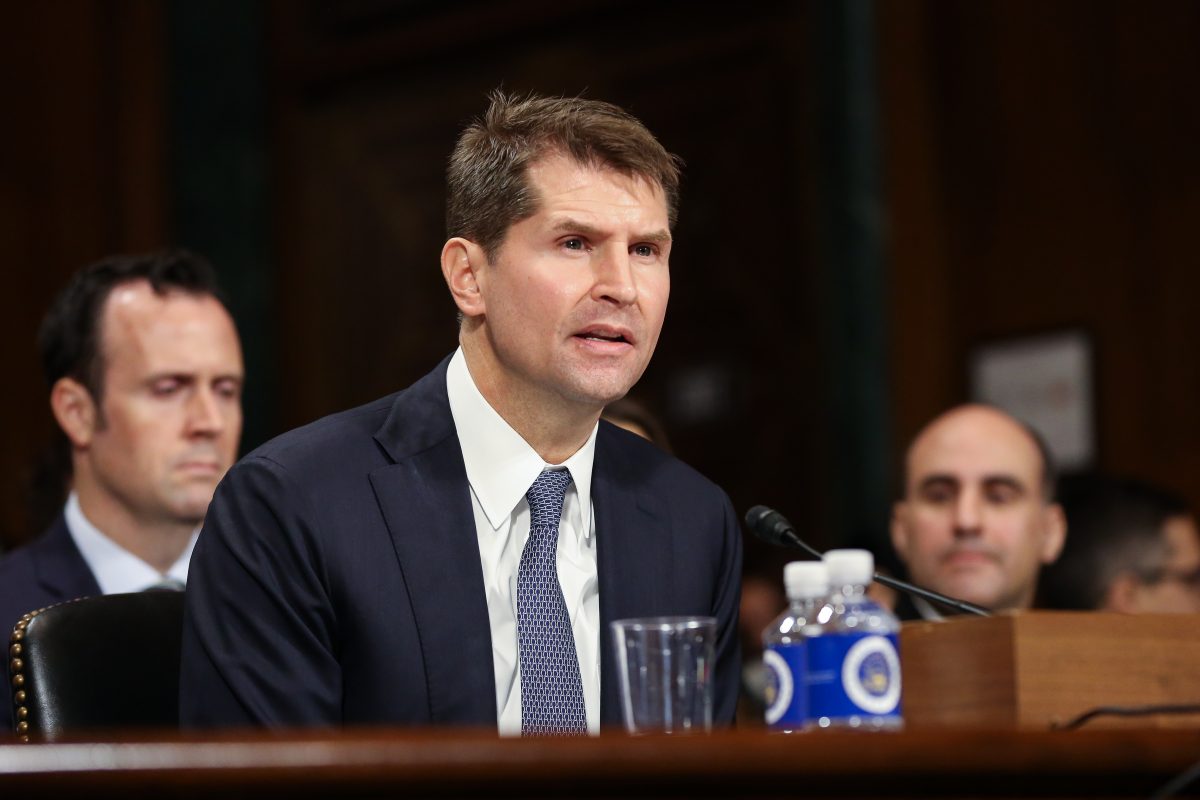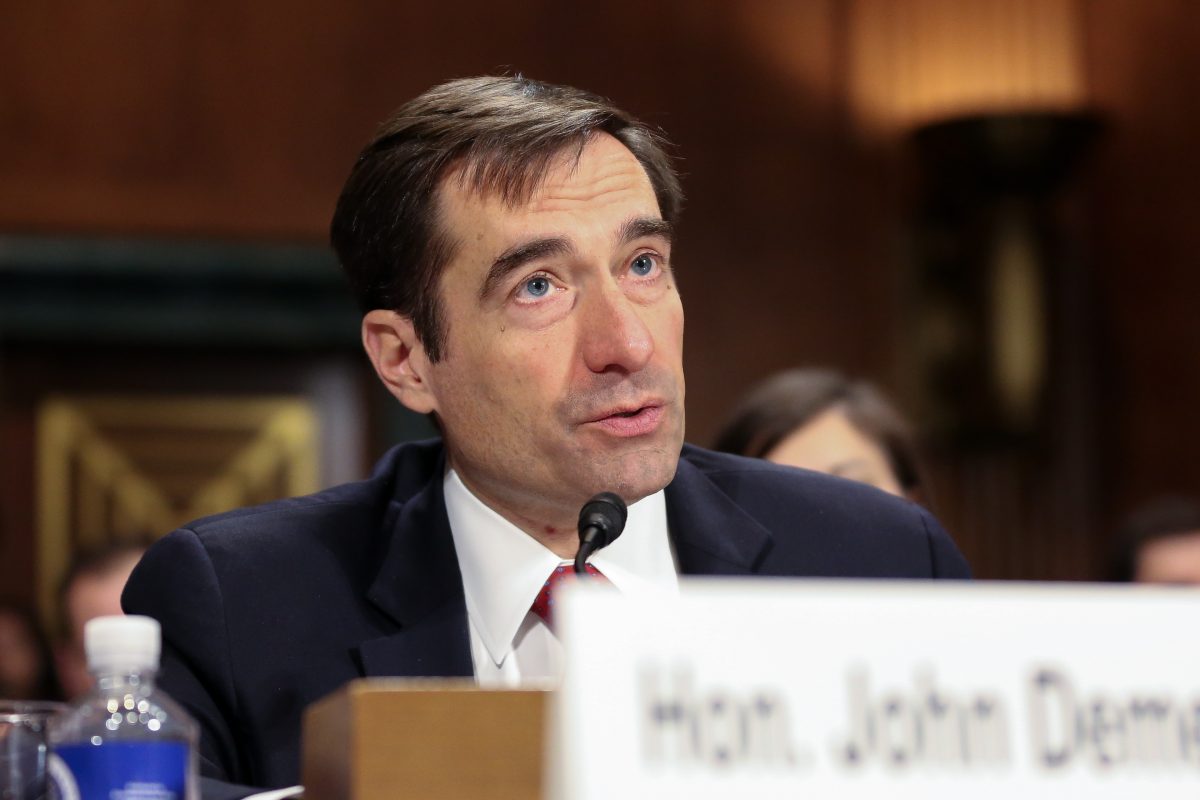Communist China Poses Greatest Threat to US and World, Senators Told




WASHINGTON—Far above everyone else, Communist China poses the severest threat to the U.S. economy and national security; the future of the whole world is at stake; and the United States needs a whole-of-society approach to fight back, U.S. senators were told at a Dec. 12 Judiciary Committee hearing.
In his opening remarks at the hearing, “China’s Non-Traditional Espionage Against the United States: The Threat and Potential Policy Responses,” committee Chairman Chuck Grassley (R-Iowa) said that while Russia’s interference shouldn’t be underestimated, the media hysteria over all things Russia has distracted attention from arguably a greater, more existential threat: China’s efforts to overtake the United States as the world’s preeminent superpower in all phases of society.
“When it comes to espionage, FBI Director [Christopher] Wray has said, ‘There’s no country that’s even close’ to the People’s Republic of China. General Keith Alexander called China’s estimated gains from economic espionage of up to $600 billion, ‘the greatest transfer of wealth in history.’
“China is believed to be responsible for 50 to 80 percent of cross-border intellectual property theft worldwide, and over 90 percent of cyber-enabled economic espionage in the United States. Reports issued this year by the White House Office on Trade and Manufacturing, the U.S. Trade Representative, and ODNI [Office of the Director of National Intelligence] all report detailed findings on China’s role as a prime cyberattacker and thief of American intellectual property and technology.”

Sen. Charles Grassley (R-Iowa) chair of the Senate Judiciary Committee, at the panel’s hearing on “China’s Non-Traditional Espionage Against the United States: The Threat and Potential Policy Responses” in Washington on Dec. 12, 2018. (Jennifer Zeng/The Epoch Times)
Hope for Good Relations Coming Apart
Sen. Dianne Feinstein (D-Calif.) expressed her disappointment that the decades-old “hope” for a good relationship with China has begun to “come apart,” and said the most concerning aspect of the Chinese government’s non-traditional espionage efforts was its scale.
Feinstein cited a 2013 report of “Commission of the Theft of Intellectual Property” and said that out of all state-sponsored data breaches motivated by espionage, the People’s Republic of China was responsible for 96 percent.
“The commission estimated that the Chinese government’s cyber-theft activities cost the United States $300 billion annually in intellectual property, $100 billion in lost sales, and 2.1 million lost jobs,” Feinstein said.
Sen. Ted Cruz (R-Texas) said, “I am increasingly concerned that China is gaining access to American secrets, using non-traditional all-of-nation approaches, to conduct espionage against our allies.”
Threat to Entire World
Bill Priestap, assistant director of the FBI’s Counterintelligence Division, testified that with the Chinese Communist Party having control over all aspects of the society, it poses a threat not only to the United States, but to the entire world.

“Make no mistake, the Chinese government is proposing itself as an alternative model for the world, one without a democratic system of government. It’s seeking to undermine the free and open rules-based order we helped establish following World War II. Our businesses and our government must adapt in order to compete and thrive in this world,” Priestap said.
“It is impossible to overstate the differences between the American and Chinese systems. China is an authoritarian, one-party state where the Chinese Communist Party reigns supreme. At the Chinese Communist Party’s direction, the Chinese government dominates every facet of Chinese life, through actions such as central economic planning, internet and media censorship, and leveraging intrusive technologies.”
Priestap believes that apart from competition between companies and industries, the United States will also need to compete with China at a more basic level.
“This will be a competition of economics, but also of ideals and values, to determine which system better utilizes the talents and resources of the people, for the good of the people,” he said.
“Alternatively, if we do not also develop a holistic national response and recognize the importance of sharpening our country’s competitive advantages, we will not continue to attract or keep the people we need.
“We must persuade them to choose freedom, reciprocity, and the rule of law. What hangs in the balance is not just the future of the United States, but the future of the world.”
Whole-of-Government Response
John C. Demers, assistant attorney general of the National Security Division at the U.S. Department of Justice, said in his testimony, “From 2011 to 2018, more than 90 percent of the department’s cases alleging economic espionage by or to benefit a state involve China, and more than two-thirds of the department’s theft of trade-secrets cases have had a nexus to China.

“In all of these cases, China’s strategy is the same: rob, replicate, and replace. Rob the American company of its intellectual property, replicate the technology, and replace the American company in the Chinese market and, one day, the global market.”
Demers also called for a whole-of-government response.
“While some of China’s tactics violate criminal laws, not all of them do. Even the violations may be difficult to detect and the offenders even more difficult to apprehend. For this reason, the department must follow the same approach here that we follow with terrorism or classic espionage,” he said.
“We must cultivate traditional law enforcement responses (such as investigations and prosecutions or civil suits) to disrupt specific actors, while at the same time, supporting the other departments and their authorities in a long-term, whole-of-government effort to raise the costs of bad behavior and advance the administration’s national security strategy.”
Peter Harrell, adjunct senior fellow for the energy, economics, and security program at the Center for a New American Security, testified that “when it comes to economic espionage, it is important to keep in mind that espionage is but one element in a broader Chinese strategy to modernize its economy. To promote China as the world leader in a range of technologies will be critical to both economic and military power in the years ahead.
“China is pursuing a whole-of-society approach to its technological capabilities. That includes purchasing innovative companies through overseas investments, requiring Western companies to transfer cutting-edge technologies to China as a condition of market access, providing vast state resources to finance domestic technological development, financing training for top Chinese students and researchers overseas, and paying a hefty premium to attract talent back to China,” Harrell said.
“The bottom line is if there is information out there that China thinks is of value, the odds are that China has or will try to steal it.”
Priestap said that to counteract Communist China’s all-out traditional and non-traditional espionage, the United States needs to raise the public’s awareness, and pass on information to all people, including businesses, academia, and NGOs.
In response to a question from Sen. Kamala Harris (D-Calif.) regarding cybersecurity, Christopher Krebs, director of the Cybersecurity and Infrastructure Security Agency at the Department of Homeland Security, said that more government resources, upskilling of personnel, and consolidation of security tools are all needed.
No comments:
Post a Comment
Comments always welcome!